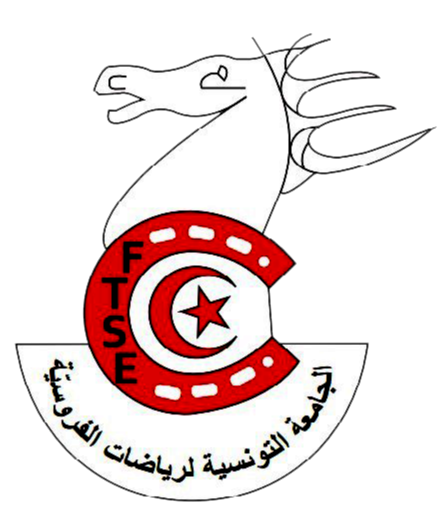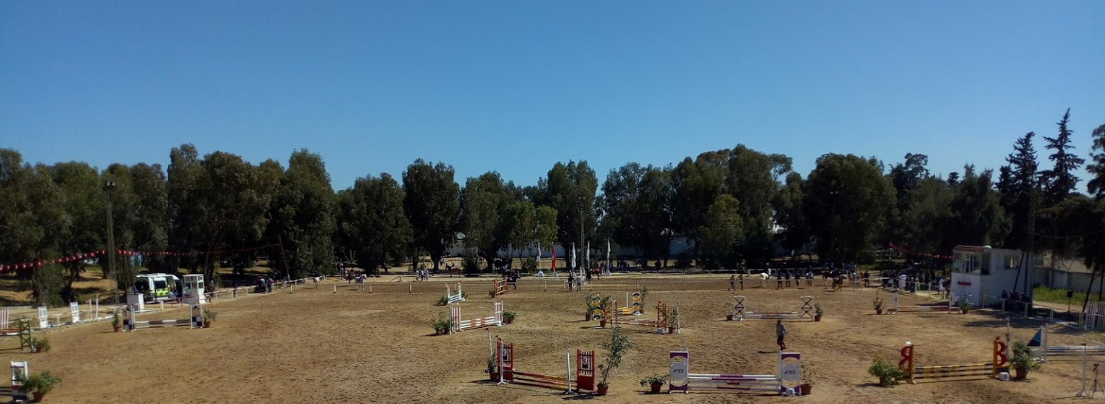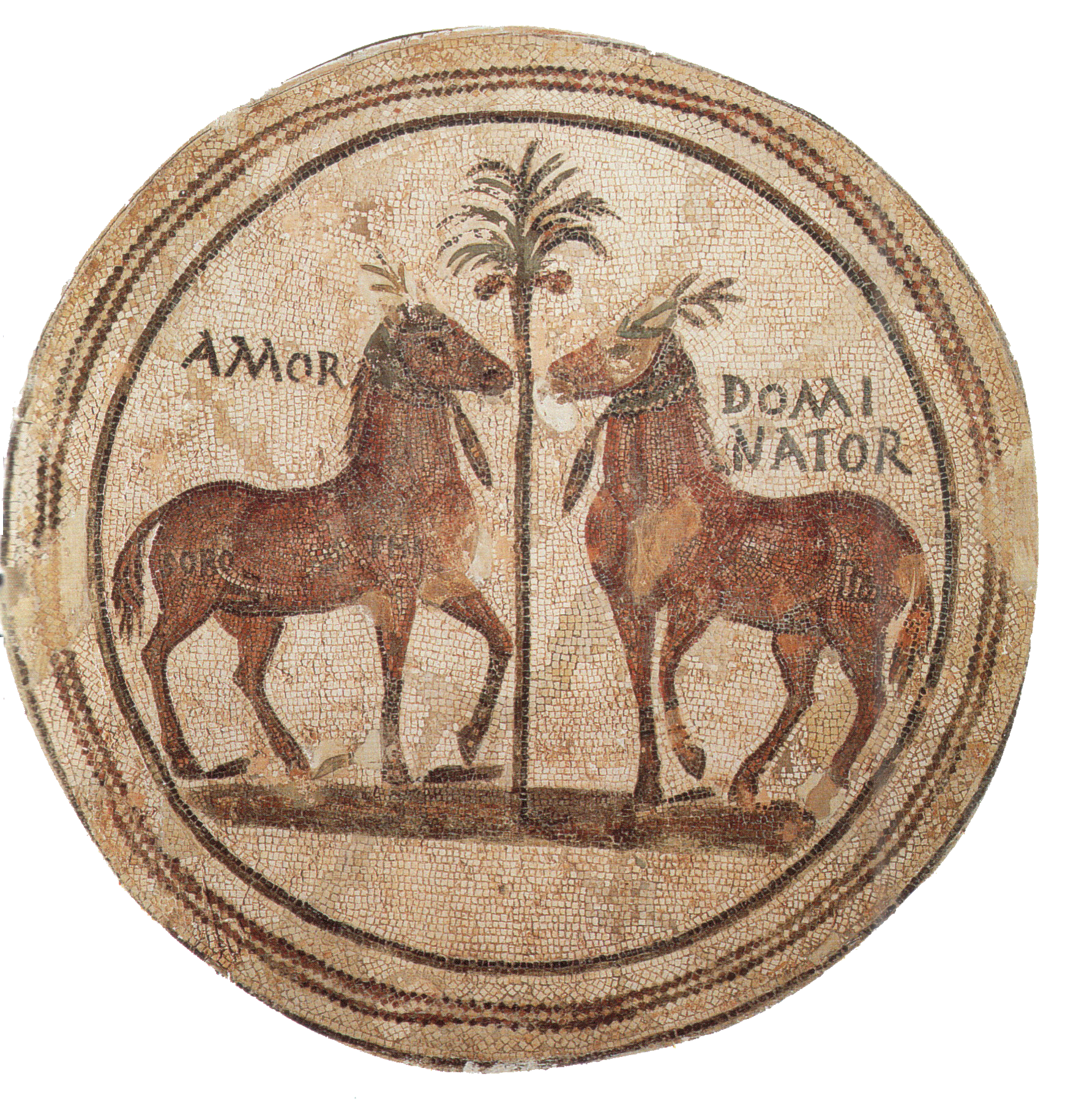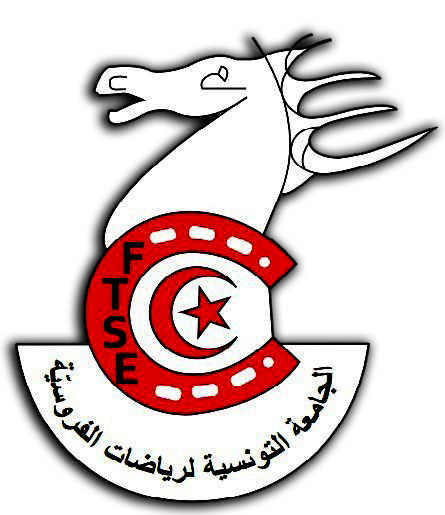
- Details
- By anouarsgaier
- Structure et Fonctionnement Catégorie
- Hits: 2039
The FTSE is an association governed by Organic Law No. 95-11 of February 6, 1995. It was created on October 12, 1964, and its headquarters are located at 62 Avenue de l'UMA, Nesma Building, Apartment 2, Ground Floor, 2036 Soukra.
The Federation
Loi organique n°95-11 du 6 février 1995
Statut de la Fédération.
Cahier des charges pour l’organisation des CSO.
Catégorisation des épreuves de CSO.
Règlementation des licences 2018 .
Nouvelle formule d'assurance 2012
Critères classement championnat endurance
Règlement officiel des degrés
Degré d’initiation commun aux différentes disciplines équestres
Premier degré Saut d’Obstacles
Deuxième degré Saut d’obstacles
Premier degré Endurance
Deuxième degré Endurance
Règlement des épreuves Jeunes Chevaux CSO
Catégorisations et conditions techniques CEN
Catégorisations et conditions techniques CEI
Procédure de passage de degré
Recueil degré initiation
Recueil degré premier degré
Recueil degré deuxième degré
Devenir Vétérinaire FEI
Affiliated Clubs
Cahier des charges des clubs affiliés
La F.E.I.
Réglements de la FEI

- Details
- By anouarsgaier
- Structure et Fonctionnement Catégorie
- Hits: 1840
Presentation
The Federal Bureau (FB) is supported by commissions, whose roles, responsibilities, and operating conditions it defines.
These commissions are responsible for assisting the FB in the functioning of the FTSE and in achieving its objectives.
The commissions are formed by the FB at the beginning of each new sports season.
Role of the Commissions
- At the request of the FB, they study or propose the necessary sports, technical, legal, and functional measures required for the organization and control of equestrian disciplines practiced within the FTSE, as authorized by the overseeing Minister.
- They work in collaboration with the National Technical Direction (NTD) in its mission to develop the concerned discipline and in drafting a sports policy in accordance with the aforementioned ministerial delegation.
- In coordination with the NTD, they propose to the FB sports calendars and regulations in preparation for the Olympic, Regional, World Games, and other encountered constraints.
Composition of the Commissions
- The FB can create special commissions whose mission is to assist in specific or one-time actions. It defines their responsibilities both in terms of nature and duration.
- Commission presidents, appointed by the FB, propose a composition after consulting with the President of the Federation (PF). The latter appoints an administrative or technical collaborator to assist each commission president, and the duration of commission appointments is renewable annually.
- Each federal commission consists of a minimum of three and a maximum of ten members, with at least two-thirds of the members required to be external to the FB.
- The commission president must be a federal member.
- In the president's absence, the work is directed by the longest-serving member present.
- Upon the recommendation of commission presidents and following a call for applications, the FB appoints the members of the federal commission.
Functioning of the Commissions
- The calendars and agendas are set by the commission presidents.
- The commissions meet as often as necessary and at least once a month, upon convocation by the commission president. The Federation's Permanent Secretary General (SG) ensures the follow-up and coordination of their functioning.
- Meeting minutes, signed by the commission president and the session secretary, are sent to the Federation SG for review at the next FB meeting.
The FB implements the necessary means for the execution of decisions after approval.
- Federal commission meetings must be held at the FTSE headquarters.
- The minutes of commission meetings are recorded in a numbered log specific to each commission and kept at the FTSE headquarters. They must be signed by all members present and forwarded to the FB within a week.
- Federal commissions keep their archives at the FTSE headquarters.
- Decisions of federal commissions, except the disciplinary commission, can only be made in the presence of at least two-thirds (2/3) of the members and are taken by a majority vote of the members present. In the event of a tie, the president’s vote is decisive.
- A commission member who is absent without valid reason for more than three consecutive times during the same sports season automatically loses their membership status.
Types of Commissions
The Legal and Disciplinary Commission
- The Legal and Disciplinary Commission (LDC) has advisory authority on any matter.
- It can be called upon by the FB or one of its members as well as by the Technical Commissions.
- It also has the authority to resolve all conflicts that may arise within the FTSE concerning statutory, regulatory, or disciplinary matters.
- It is responsible for the creation and organization of the various legal bodies tasked with ruling on these matters.
- It has the power to initiate action by bringing matters to the attention of disciplinary legal bodies regarding any issues that may lead to sanctions.
- It can refer cases to sports legal bodies, in the interest of the FTSE, concerning any issues involving the application or interpretation of regulations.
- It drafts procedural regulations applicable to the introduction and handling of cases brought before sports or disciplinary legal bodies.
Technical Commissions Specific to Each Sport Discipline
- Establish the general calendar and draft sports regulations related to each national, international, or regional equestrian competition.
- Ensure the initiation and smooth running of official national competitions.
- Inventory the number of equestrian Coaches and Trainers.
- Prepare the annual technical activity report of the commission.
- Validate and centralize the official and friendly competition results.
- Establish the annual ranking table.
The Communication and Sponsorship Commission
- Promote the Federation, its structure, missions, and operations, and disseminate information regarding equestrian activities to members, the general public, and abroad (Website, events, advertising, bulletin, etc.).
- Enhance communication with the press and media to promote equestrian activities in Tunisia.
The Medical Commission
- Ensure the medical monitoring of national team riders.
- Promote physical and equestrian activities to the medical and school communities.
- Ensure prevention.
- Analyze accident statistics.
- Train equestrian first-aiders.
The Veterinary Commission
- It is responsible for ensuring compliance with the regulations that outline the obligations of license holders regarding their mounts, in terms of their welfare, compliance with national and international health regulations, and the prevention and control of doping.
- The veterinary commission is responsible for veterinary health education among sports associations affiliated with the FTSE, particularly their riders and licensed or treating veterinarians affiliated with the Federation.
- The veterinary commission is also tasked with promoting and maintaining the status of veterinarians within the FEI.
The Anti-Doping Disciplinary Commission
- The Federation's disciplinary authority over its members in the fight against doping is exercised by the Anti-Doping Disciplinary Commission (ADC).
- This commission is responsible for reviewing and applying sanctions at both first instance and appeal levels in this domain.
- Among its members must be a veterinarian and a physician.
The Rewards Commission
- It is composed of the PF and all honorary members.
- It decides on the awarding of federal distinctions to riders, officials, and anyone who has contributed to the benefit of equestrian sports and its associated disciplines.
The rewards commission considers regional awards when deciding on the awarding of the federal recognition diploma.
These awards include:
- Recognition Diploma;
- Bronze Medal;
- Silver Medal;
- Gold Medal.

- Details
- By anouarsgaier
- Structure et Fonctionnement Catégorie
- Hits: 1251
The Federal Bureau (FB) is composed of 12 elected members:
- A president, who is the president of the winning list and the president of the FTSE.
- A vice-president.
- A treasurer.
- 9 federal members.
The elected members divide the tasks and missions of the Federation.
On September 9, 2024, during the Elective General Assembly, active equestrian sports associations within the Tunisian Federation of Equestrian Sports elected the list of Mr. Mounir ABICHOU for a 4-year term for the period 2024-2028.
The elected Federal Bureau is composed as follows:
- President: Mr. Mounir ABICHOU
- Vice President: Mr. Hatem BEN MABROUK
- Treasurer: Mr. Riadh MEKSI
- Federal Member: Mr. Maher BERRACHID
- Federal Member: Dr. Omar TRABELSI
- Federal Member: Mr. Aymen DAMMAK
- Federal Member: Mr. Noureddine BAROUDI
- Federal Member: Ms. Lamia BEN EZZEDDINE
- Federal Member: Ms. Amal BEN HMIDA
- Federal Member: Mr. Houssemeddine JBABLI
- Federal Member: Mr. Faouzi GAZZAH
- Federal Member: Mr. Fethi FOURATI
Non-elected members of the FB are:
- Permanent General Secretary: Ms. Basma ARFAOUI
- A Permanent General Secretary, representing the Federation's administrative body, is appointed in coordination with the overseeing ministry and participates in FB meetings without voting rights.
- A Technical Director is appointed by the overseeing Ministry upon the FTSE's proposal, collaborating on all technical aspects of the sports disciplines under the FTSE. The Director participates in FB meetings and has all the rights and powers outlined by Decree No. 552 of June 20, 1977, establishing sports technical departments.
Powers of the Federal Bureau
The FB holds extensive powers to perform or authorize all actions not reserved for the General Assembly (GA) or any other Federation body, which have their own powers as outlined in the statute, and cannot be assumed by the FB.
- The FB’s decisions and work notes apply to all sports associations affiliated with the Federation.
- It oversees the management of FB members and has the right to review their actions.
- It approves the annual accounts.
- It authorizes the President of the Federation and the Treasurer to make any purchase, sale, or lease.
- It approves proposals from commissions.
- It focuses on planning, training, financing, upgrading, developing, evaluating, monitoring, and managing elite and national team matters.
- It addresses issues concerning Tunisian equestrian sports and the priorities defined by the GA.
1-Manage the federation, direct its affairs, and implement its programs. It is the sole authority authorized to address and deal with international organizations and foreign federations.
2- Ensure compliance with legal and regulatory texts governing the equestrian sports sector in Tunisia.
3- Ensure compliance with the principles of the Olympic Charter and international sports regulations.
4- Address all forms of violence in sports activities, all forms of discrimination, and cyber crimes that could tarnish its activities.
5- Study, monitor, control, and document all management files of the federation and its concerned structures.
6- Organize training sports camps, forums, conferences, and seminars in cooperation with public authorities, national and international sports structures, and specialized national and foreign institutes for the training of managers, coaches, and officials to improve their technical, administrative, and scientific levels.
7- Develop the financial resources of the federation and manage them judiciously.
8- Develop programs for specialization and training of young athletes and monitor their implementation.
9- Prepare and establish a general competition calendar.
10- Inspect the sports facilities of associations affiliated with the federation and monitor this process regularly in coordination with regional and local authorities.
11- Prepare national teams and manage their affairs for different categories and disciplines.
12- Appoint national and regional trainers at both the national and international levels.
13- Monitor the activities of associations and their technical, administrative, and financial behavior.
14- Establish an educational program and health awareness (for both humans and horses) to prevent doping abuse and inform stakeholders, including athletes and coaches, of all legislative and regulatory provisions related to anti-doping in cooperation with the Tunisian National Olympic Committee and the National Anti-Doping Agency.
15- Exercise disciplinary power over all affiliated associations, officials, coaches, athletes, and any person responsible for horses, as well as the public during sports events in accordance with the provisions of this statute and the federation’s regulations.
16- Prepare contracts for programs related to the preparation of national teams and the development of specialization over four years and submit them to the supervisory authority for approval.
17- Conclude program contracts with targeted sports associations in the equestrian disciplines overseen by the federation. These contracts determine the work program and expected objectives.
Functioning of the Federal Bureau
The FB meets periodically, at least once a month, upon convocation by its president, communicated by any means leaving written trace or by email at least three days before the session. A meeting can also be convened if full attendance is confirmed.
FB deliberations are only valid if approved by the majority of members.
The FB makes its decisions after deliberation by a majority vote of the members present, and in case of a tie, the president’s vote prevails.
The FB may also convene urgent meetings at the president's invitation whenever necessary.
All FB decisions are recorded in meeting minutes, which are numbered, dated, and signed by all members present. The minutes specify the names of members present, excused absentees, and unexcused absentees.
Copies of the meeting minutes are sent to the supervising authority.
The services of the FB members and the members of the university associations and committees are free, and they cannot receive any salary or reward of any kind, although they may be reimbursed for travel, accommodation, and other urgent expenses incurred while performing tasks that fall within federal activities and duties.


- Details
- By anouarsgaier
- Structure et Fonctionnement Catégorie
- Hits: 205
Its history
Founded in 1961 by the Ministry of Youth and Sports, the Tunisian Federation of Equestrian Sports and Shooting (F.T.S.E.T.) quickly grew to promote equestrian sports in Tunisia through the establishment of private and state equestrian associations across the entire republic. The Federation experienced significant growth, especially with the creation in the year 2000 of the National Equestrian Center of Soukra (CNSE), which served as a center for the promotion and development of equestrian sports. This Center was established on a land of more than 8 hectares, a state-owned property located in Soukra, which belonged to the Medjerda Valley Development Office.

In 2009, following the separation of shooting activities from equestrian activities, the FTSET became the Tunisian Federation of Equestrian Sports (FTSE).
In 2011, after the free elections of a new Board, the FTSE left the National Equestrian Center of Soukra by government decision, awaiting the allocation of a new location to re-establish the CNSE and its administrative office.
Since its creation in 1961, the Federation has been led by the following figures:
- General Habib Ammar
- Mr. Slaheddine Bali (Minister of Defense)
- General Mohamed Saïd El Kateb
- Colonel Major Abdelaziz El Oueslati
- Colonel Mohamed El Ouerghi
- Colonel Mustapha Hachicha
- Colonel Major Azmi Mahjoub
- General Mohamed Saïd El Kateb (RET)
- Mr. Maher Berrachid
- Mr. Hatem Marnaoui
The Composition of the Elected Federal Boards since 2012
| Term | Président | Membres |
| 2012 - 2013 | Mr. Maher Berrachid | Dr. Mohamed Habib Zaouia, Dr. Yassine Mootamri, Mr. Aslem Jallouli, Dr. Sadreddine El Kamel, Miss Sonia Bouhejba, Mr. Mohamed Lassâad Ben Othmane, Mr. Malek Ben Ayed, Dr. Salama Achour, Mr. Hatem Chaouachi, Mr. Koreich El Kamel, Dr. Omar Trabelsi, Mrs. Basma Arfaoui (permanent secretary general) |
| 2013- 2016 | Mr. Maher Berrachid | Mr. Hatem Ben Mabrouk, Mr. Ridha Bechikh, Mr. Ahmed Lasram, Miss Faten Derbel, Mr. Younes Bedoui, Mr. Noureddine Baroudi, Mr. Mohamed Chaouachi, Mr. Houcemeddine Jbébli, Mrs. Malek Bach Hamba, Mr. Mohamed Aouina, Mr. Mohamed Lassâad Ben Othmane, Mrs. Basma Arfaoui (permanent secretary general) |
| 2016 - 2020 | Mr. Maher Berrachid | Mr. Hatem Ben Mabrouk, Mr. Ridha Bechikh, Mr. Riadh Meksi, Dr. Mohamed Lassâad Smaoui, Mr. Hatem Marnaoui, Mr. Younes Bedoui, Dr. Sirine Zaouali, Mr. Adel Yakoubi, Mr. Noureddine Baroudi, Mr. Nizar Yakoubi, Dr. Khadija Driss, Mrs. Basma Arfaoui (permanent secretary general) |
| 2020 - 2024 | Mr. Hatem Marnaoui | Mr. Adel Yakoubi, Dr. Mohamed Lassâad Smaoui, Mrs. Lamia Ben Ezzeddine, Mr. Firas El Kateb, Mr. Aymen Dammak, Mr. Nizar Yakoubi, Mr. Malek Ben Ayed, Mrs. Faten Ghathass, Dr. Sirine Zaouali, Dr. Kacem Doss, Mrs. Basma Arfaoui (permanent secretary general) |


- Details
- By anouarsgaier
- Structure et Fonctionnement Catégorie
- Hits: 213
Through its member associations, the missions of the FTSE focus on:
1.Equestrian Sporting Activities
- Organize, develop, and increase the practice of equestrian sports, defend its interests, manage its affairs, and ensure its follow-up across the entire territory of the Republic, in compliance with current regulations.
- Develop the competition calendar.
- Draft and update its Statutes, internal regulations, and sports regulations.
- Participate in the organization, under the supervision of the Ministry of Sports, of the pathway to high-level sports.
- Supervise national teams in the various equestrian disciplines.
- Manage rider licenses and organize grade progression exams for evaluating the riders' technical skills in mastering equestrian techniques.
2.Sports Structures
- Approve, develop, and certify sports facilities and materials used in equestrian activities by member sports associations and during competitions.
- Supervise the organization of all regional, national, and international sporting events.
3.Training
- Organize and oversee all official or friendly activities at national and international levels, in compliance with current regulations.
- Manage the training of officials in line with the requirements of the International Equestrian Federation.
- Manage training programs leading to qualifications in equestrian teaching.
- Promote the establishment of athlete training centers under the federation's jurisdiction and provide technical supervision for the various equestrian sports training centers.
4.Relations with National and International Sports Bodies
- Manage the participation conditions for associations, referees, and officials in international, continental, and regional sporting events.
- Nominate Tunisian candidates for positions in international, regional, and continental sports bodies, subject to the approval of the supervising authority.
- Create national and regional leagues in alignment with the distribution of Regional Directorates of the supervising Ministry throughout the Republic.
- Ensure and develop relations with national sports structures, public authorities, the International Equestrian Federation, confederations, continental and regional federations, and foreign associations.
- Affiliate or partner with various organizations to promote equestrian sports.
- Appoint a representative to public institutions related to equestrian activities, such as the FNARC and the Horse Racing Society.
5.Promotion of Equestrian Sports
- Promote and develop equestrian activities and disciplines.
- Manage promotional activities for equestrian sports, including the publication of documents.
- Organize scientific sporting events, congresses, conferences, and exhibitions related to equestrian sports.
![]()
